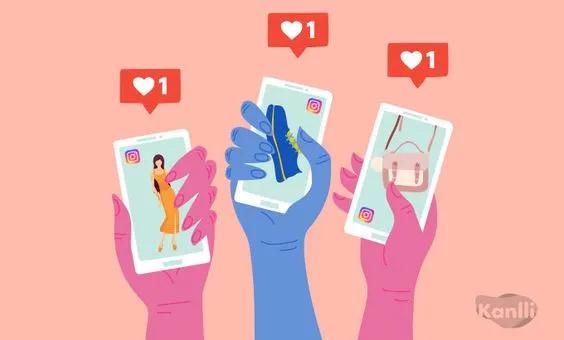周末好呀,秋季赛已经火热开打,大家对于辩题On balance, social media has been more beneficial than harmful.想必也是烂熟于胸啦。
今天的NSDA君不走严肃画风,想从辩题的Social Media引申开去,聊聊社交媒体能给我们的辩论、演讲技巧提供什么帮助。——是的,NSDA China教研总监Gordon Peer的趣味小课堂久违地更新啦!
我们每天刷视频、关注网红博主,但原来他们亦有辩论技巧的可取之处?且听Gordon教练如何解说!

各大社交媒体平台以及其中的KOL经常是辩手寻求建议和信息最多的资源。我也能够理解,这一概念一旦放到成功的辩手身上就将毫无逻辑。然而,一次被我爱人提醒,想到了一个很棒的概念,可以用在我们的辩论回合中。

一天下班回到家,我把办公室发生的“各式八卦”分享给我可爱的妻子。很明显,虽然在我看来又激动又刺激,但10分钟之后,她说:“你能不能直接说重点?就像……你懂的,像我最喜欢的网红博主一样。”
当时我有些震惊,但她是对的,我在跟她扯东扯西但就是没有说到重点。然而,当时的我并不能理解这些网红如何帮助我更好地表达观点。
因此,我做了一些小小的“调查”(好吧,其实只是花了几个小时的时间刷了下我的手机和一些当红的网站),然后发现这些KOL博主有一个共同点:用快剪视频和贯穿始终、大胆且浮夸的表情包来吸引住观众的注意。

我不能用个巨型广告牌作为开头来跟我老婆聊天,也不能把我的主要观点标出来(尽管她可能会因此而嘲笑我),所以我该如何更好地持续吸引她的注意呢?
显然,最终落在一个为成功的营销以及广告策划所普遍运用的工具——米勒幻数(Miller's Magic Number)。哈佛大学的乔治米勒教授认为演讲人、广告商甚至辩手都需要在他们的例子或者辩驳过程中,记住这个“魔幻的”数字。人们在说话或者交谈时应有7个主要观点,根据听者来决定加减2个观点。任何过多的冗余将会让听者不明所以,失去交谈的兴趣。

在绝大多数情况下,辩手试着将信息分解,以达到压制对手的目的。然而,这一做法疏远了和观众的距离,和裁判的距离。他们可能会在结束这轮比赛时想知道为什么他们会输,而他们的流程显然让他们获胜。问题在于,对于大多数裁判来说,即使是无可挑剔的流程下来,在一轮比赛里,他们能够处理和理解的主要观点只有7个左右。
了解了这些,辩论中如何更好地运用米勒幻数,我会给出两个主要建议。
记得开门见山。
Never Forget to Frontline.
成熟的辩手会运用这一技巧在反驳环节的最开始简要提出中心观点,随即补充细节。比起单纯按照顺时序来吃力地反驳对方辩手的观点例证,或者是重申自己的观点,这一技巧要优于前两者,因为此时裁判能够注意的只有7个左右的点。
普遍情况下,人们会按照时间顺序来解释一个事件,那是因为这正是我们个人记忆的顺序。然而,网红们意识到,比起按照时间顺序陈述事情,将中心观点提前或是开头就提到更加让人激动、吸引注意。
同样地,成功的辩手为赢得裁判的注意,也可以通过将信息切成不超过7到9个主要观点,具体根据裁判的水平判断。

不要长篇大论。
Don't Bury the Lead.
关于这一点,我们可以看看KOL博主们的短视频或者推送,他们想说的重点都很突出明显。辩手通常会犯一个致命的错误,也就是在对方辩手的所有例证陈述中徘徊,而没有注意到对方最易驳斥的观点并加以连续的反击。这些辩手往往会提及14个不同的观点,尽量不“抛弃”对方的任何一个点,但这个时候裁判可能已经不知道你最重要的那个“得分点”或是辩因在哪了,而这些丢失的因素也许才是本轮致胜的关键。
这样一来,辩手就应该重新组织自己在反驳环节的语言,不仅要不忘自己的中心论点在哪,将中心论点提前,并且要以对方致命的缺陷和漏洞为开头,以此来掌握裁判的注意。当然这些技巧不只能用在辩论中。害!即使是和爱人的日常对话,也能巧妙地运用,将重要的点放在一开始说,之后再加以解释。所以,来看看这对我老婆奏不奏效吧,“嗨亲爱的,我爱你!”(我觉得这肯定能引起她的注意!

以上为NSDA君编译
What Can Social Media Teach Us About Debate?
By: Gordon Peer
Oftentimes, social media and its influencers are some of the last sources debaters look to for advice or information. I get it, the concept seems to defy all logic when it comes to successful debaters. However, my wife reminded me one time of a great concept we can apply to our rounds.
After coming home from work, one day, I told my lovely wife all about the “comings and goings” of the office. Obviously, I thought it was thrilling and exhilarating information, but after about 10 minutes, she said, “Can’t you just get to the point? Just be like...you know, like my favorite celebrities on social media.” I was a little stunned, but you know what? She was right, I was talking North, South East, and West of the situation instead of just getting to the point. However, I did not yet understand how Social Media Influencers could help me better convey my point.
So, I did a little bit of “research” (well, really just me spending a couple hours looking at my phone and popular sites), and what I noticed is that many of them were able to retain users' attention with quick cuts and edits, using emboldened graphics throughout. I couldn’t walk into a conversation with my wife with a big billboard, underlining my main points (though she might like laughing at me for it), so how could I better retain her attention?
Well, apparently, it all comes down to a common tool employed by the most successful marketers and advertisers - Miller’s Magic Number. Dr. George Miller of Harvard University posits this “magical” number that speakers, advertisers, or even debaters need to remember in their cases and rebuttals. People should have seven main points, plus or minus two depending on your audience. Anything more leaves the audience lost and disinterested.
Too often, debaters try to spread information, attempting to overwhelm their opponents. However, this attempt alienates the debater from their audience, the judge. They might leave the round wondering why they lost when their flow clearly has them winning. The problem is that most judges, even with impeccable flow, can only process and understand seven main points from any given round.
Knowing this, I offer two main suggestions debaters can use to better employ Miller’s Magic Number in their rounds. Never Forget to Frontline. Advanced debaters will use this technique to briefly mention the main points at the beginning of rebuttals. They will then detail more of the points as their time continues. This strategy is better than just plodding along chronologically through the opponent’s case or just reiterating their own because the judge can now focus on the main seven or so points.
Too often, people explain the events chronologically because that is how we personally remember the material. However, social media influencers realize that chronological events aren’t as exciting as the main ideas “frontlined” and mentioned at the beginning. Likewise, successful debaters can “frontline” for the judge by also “chunking” the information into no more than 7-9 main points depending on the academic level of the judge.
As for the second suggestion on how we employ Miller’s Magic Number, we can look at some of the most basic thumbnails of Social Media Influencers. Don’t Bury the Lead. Debaters will commonly make the mistake of meandering through all of their opponent’s material without focusing on the greatest weaknesses and relentlessly attacking. They will mention 14 different ideas, trying not to “drop” any of their opponents’ points, but the judge has missed the most important “voters” or reasons they should win the round.
Debaters should reorganize their rebuttals to not only frontline but also start with their opponent’s biggest flaws and gaps, so as to grab their judges’ attention. These strategies are not just for debate though. Heck, even normal conversations with loved ones can be improved by subtly beginning with the big points and then explaining the details later. So, let’s see if this works with my wife. “Hey Honey, I love you!” (I think that got her attention!)
免费留学评估




